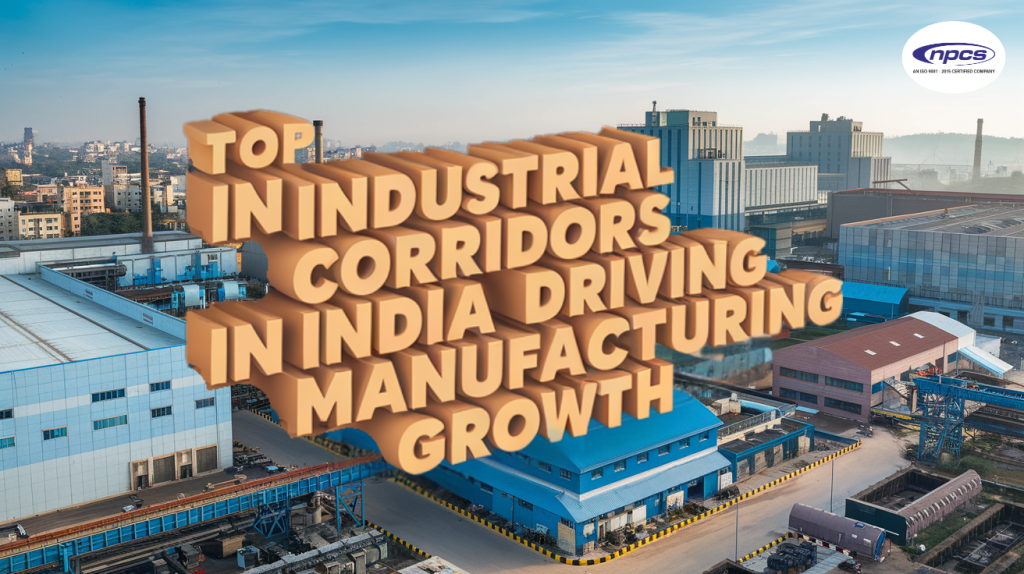Certainly, India is an emerging economy and has the potential for enormous industrial growth. That’s why it is becoming one of the most favored destinations for investment in manufacturing. One of the major reasons for development of industrial corridors in India being introduced. These corridors are meant for enhancing the manufacturing capability of the country, developing infrastructure, and generating employment opportunities. In this article, some of those super-duper-industrial corridors in India and its growth are mentioned.
Related Books: Business books on several industries
What Are Industrial Corridors in India?
Industrial corridors in India connect strategically planned routes and industrial hubs to what major transport means of movement like highways, railways, and ports. These corridors were meant for rein-forcing a seamless flow of goods and services while provisioning the necessary infrastructure for the bu- sinesses to thrive. The Government of India has identified or planned several industrial corridors in India to promote propelling growth in manufacturing, exports, and investments in various sectors.
Related Business Plans: Business plans on different manufacturing Industries
Key Industrial Corridors in India Driving Manufacturing Growth
1. Delhi-Mumbai Industrial Corridor (DMIC)
Connecting the capital city of India, Delhi, with its financial capital, Mumbai, DMIC, or the Delhi-Mumbai Industrial Corridor, is the most critical one of the industrial corridors in India.It passes through six states—Delhi, Haryana, Rajasthan, Gujarat, Maharashtra, and Uttar Pradesh. It aims to develop a world-class industrial infrastructure and manufacturing hubs along the corridor.
The corridor has the capacity to generate more than 3 million jobs and has a very heavy expectation to contribute to India’s GDP. The DMIC will also provide significant linkage and play a prominent role in growth in the automotives, electronics, textiles, and engineering sectors.
2. Amritsar-Kolkata Industrial Corridor
Aside from that, there is yet another prominent industrial corridor, which is the Amritsar-Kolkata Industrial Corridor in India, intending to interconnect Punjab, Haryana, Uttar Pradesh, Bihar, Jharkhand, and West Bengal industrial regions. Located in the center of India for this purpose, it paves the way for manufacturing goods such as steel, cement, textiles, and electronics. Moreover, it will facilitate the trade of these countries with that of neighboring countries like Bangladesh and Nepal.
As this develops, it facilitates the connectivity of eastern and northern India to the outside world, facilitating a growth path for economic and industrial transformations in these regions.
Related Article: The Business of Manufacturing Epoxy Resin (Solvent Free): Increasing Opportunities for Growth
3. Eastern Peripheral Expressway Corridor
The congestion in Delhi concerning traffic will be reduced and allow further industrial growth with the Eastern Peripheral Expressway Corridor. An important industrial corridor in India that connects several of the industrial regions in Haryana, Uttar Pradesh, and Delhi from which the manufacturers will benefit with transport of goods and raw materials.
Such development will cut down the time and cost of transporting industries through the Eastern Peripheral Expressway, thus giving a big push to manufacturing in the region. At the same time, the enhanced connectivity will open avenues for investments and improve the northern manufacturing landscape.
4. Chardham Highway Corridor
This only construction of Chardham Highway Corridor is in India, which is an industrial corridor in India defining the country’s approach to developing infrastructure around its religious destinations in Uttarakhand. While the focus is on tourism primarily, it has, however, serious implications for industrial growth in the region. Enhanced roads, bridges, and other infrastructure will ease access for transporting goods to and from Uttarakhand, facilitating its corporations in food processing, textiles, and handicrafts.
This corridor creates job opportunities, improves the quality of life, and promotes economic development in the area.
For any Business related Query: Visit NPCS
How Industrial Corridors in India Contribute to Manufacturing Growth
In a very broad sense, the development of industrial corridors in India contributes largely to the manufacturing growth in the country. There are numerous facilities that the corridors bring to the manufacturing sector:
- Improving Connectivity: Industrial corridors connect hubs, enabling efficient raw materials movement.
- Integration of Infrastructure: Dewatered areas have highways, railways, jetties, and ports, thus providing a great boost to industrial productivity.
- Attracting Investments: This is a result of investment opportunities towards creating an area of growth. Evidence being domestic and foreign investment in these corridors has increased. Companies invest in these areas as they have good infrastructure and easy access to the markets.
- Job Creation: Thus, industrial corridors provide jobs for a better economy and manufacturing sector.
- Enhancing Exports: Enhumulative logistics enhance exports and place India as a hub of global manufacturing.
Also Visit: Market Research Reports
Future of Industrial Corridors in India
Fewer now lie ahead for industrial corridors in India, for many more corridors are to be declared. The development of infrastructure with business-friendly policies serves to uplift the growth prospects of manufacturing. The industrial corridors play a pivotal role in the industrialization journey of India.
The corridors for manufacturing have undergone modernization through automation and digitization.Such advancements include increased productivity, efficiency, and sustainability in the industry.
For Business related Videos: Visit Entrepreneur India
Conclusion
In conclusion, industrial corridors in India will, over the years, significantly contribute to the country’s manufacturing growth. Corridors such as DMIC, AKIC, and EPEC catapult India into the global manufacturing map. These corridors enhance infrastructure, connectivity, attract investments, create jobs, and shape India’s industrial future.
India driven by industrial corridors is also a manufacturing promoter in boosting the economy and elevating the status of global manufacturing in India.

